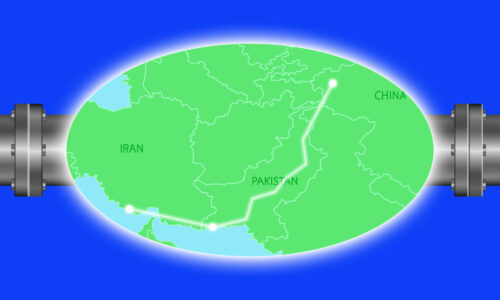‘Not the outcome China wanted’: Why a Taliban-controlled Afghanistan makes Beijing anxious
Beijing is happy to bash any failure of U.S. foreign policy, as it has in Afghanistan. But the rapid takeover of the country by the Taliban, an organization that China does not fully trust, risks heightening security concerns for Chinese interests in the region.

Before the Taliban capitalized on the withdrawal of U.S. troops from Afghanistan, swiftly taking control of every provincial capital and then Kabul in a matter of days, China was already worried about the deteriorating security situation in the country and region.
- “China calls on foreign troops in Afghanistan to…pull out in a responsible manner,” the Chinese Foreign Ministry said in May, criticizing Washington’s “abrupt” decision to withdraw.
- With Afghanistan’s future up in the air, Beijing hedged its bets last month. Chinese leader Xí Jìnpíng 习近平 called his Afghan counterpart on July 16 to urge “political dialogue…to achieve national reconciliation and lasting peace.”
- Then 12 days later, Foreign Minister Wáng Yì 王毅 hosted the Taliban in Tianjin, recognizing them as a “important military and political force” in exchange for security promises.
At the Tianjin meeting, Wang bashed the “failure of U.S. policy” in Afghanistan, and said that China hopes the Afghan people can “independently establish a broad and inclusive political structure that suits Afghanistan’s national realities.” After the Taliban takeover, the Chinese Foreign Ministry said today (in English, Chinese) China hopes the Afghan Taliban follow through on their intention to “hold talks aimed at forming an open, inclusive Islamic government in Afghanistan.”
However, according to Andrew Small, an associate senior policy fellow at the European Council on Foreign Relations and an expert on China-Pakistan relations: “Whatever schadenfreude China may be experiencing around the way the withdrawal from Afghanistan has been handled by the U.S., this is not the outcome that China wanted.”
Another prominent analyst of Chinese foreign policy, Yun Sun, the director of the China Program at the Stimson Center, also wrote recently that China has only entered into a “reluctant embrace” with the Taliban.
Here’s why Small and Sun say that Beijing may not be entirely happy with the new state of affairs in Afghanistan, even if the Americans are now much farther away on the western front:
- China doesn’t really trust the Taliban — “The relationship is born of necessity rather than preference,” writes Sun, and many Chinese officials have doubts that the Taliban will become more inclusive or avoid strengthening ties with radical Islamic organizations in the region.
- Beijing worries about Uyghur militants in Afghanistan, which Sun says exist and have real political aspirations — even if they aren’t connected to Beijing’s boogeyman, the East Turkestan Islamic Movement, which many analysts say hasn’t functionally existed in many years.
- China would have preferred the Taliban’s agenda “hemmed in by compromises with other political forces in the country, not resurgent after a military victory,” writes Small. “The Chinese government fears the inspirational effect of their success in Afghanistan for militancy across the region, including the Pakistani Taliban.”
- Multiple recent attacks in neighboring Pakistan alarm Beijing. China’s economic interests in Afghanistan’s neighbor dwarf those in Afghanistan itself, with Chinese foreign direct investment in 2020 totaling $110 million for Pakistan, but just $4.4 million for Afghanistan, Sun notes.
This last point is key: The U.S. withdrawal from Afghanistan has been punctuated for China by explosive reminders of the safety risks for Chinese interests in the region.
- Beijing has been alarmed by three attacks in Pakistan in the past four months: A car bombing of a hotel where the Chinese ambassador was due to stay; a bus explosion that killed nine Chinese nationals last month, which Pakistan recently called a suicide bombing; and a nonfatal car shooting hitting two Chinese engineers.
- The car bombing, which happened in April, was claimed by a Pakistani offshoot of the Taliban, Tehreek e-Taliban Pakistan. The Chinese Foreign Ministry has made a distinction between the two Taliban branches, saying that the Pakistani version is “universally” regarded as a terrorist organization, while the “Afghan Taliban is a self-styled political and military organization.”
- But one of Wang Yi’s repeated messages to the Afghan Taliban has been to make a “clean break with all terrorist organizations,” and a key promise from Taliban leader Mullah Abdul Ghani Baradar has been to “never allow any force to use the Afghan territory to engage in acts detrimental to China.”
- Small explains the threat that Beijing continues to perceive:
Since the late 2000s, for reasons partly related to Xinjiang and partly related to Pakistan, China has also been targeted by various other militant and terrorist groups that had previously given it a pass. The Taliban — whatever commitments it makes to the Chinese government and however willing it is to turn a blind eye to the situation in Xinjiang — has engendered an environment in which many of these groups are likely to flourish. Even if it is implausible to expect attacks on the Chinese mainland, it is already clear that threats to soft Chinese targets in the region have grown.






